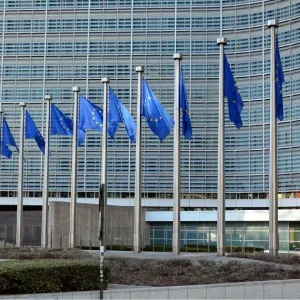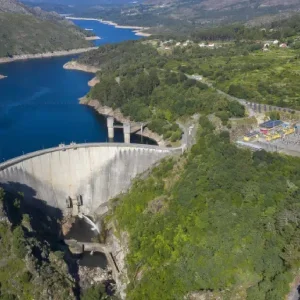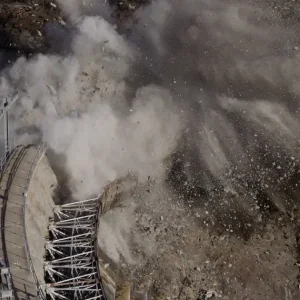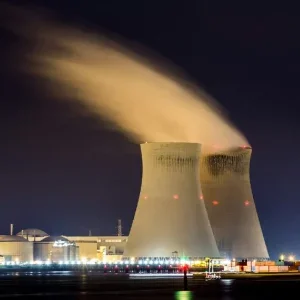The second regional consultation of the WCD focused on Latin America on 12-13 August and was held in São Paulo, Brazil. It aimed to encourage:
•Participation from a broad range of interested parties to inform WCD’s work.
•A public exchange of ideas and views among constituencies in the region.
•Development of a shared knowledge base.
From more than 80 submissions, 34 speakers were selected by the WCD from across Latin America to present their views. The presenters came from more than 12 different countries on the continent and represented a range of stakeholders in the debate, including public officials, business leaders, officials from international development agencies, scholars, and representatives of NGOs and social movements. In total, 650 people attended the first day’s sessions and over 250 attended the following day.
Past experience
Dams play a major role in electricity supply in Brazil and to varying degrees in other Latin American economies. The needs of development and growth dictate that energy demand will increase, moderated by increased energy efficiency. A variety of views emerged on the role that dams will play in satisfying future needs, particularly for electricity supply.
Dams have benefitted industry and cities and the overall development of the country, but the costs have been born by local communities affected by projects. Many of the country presentations reflected the feeling that there has been limited participation and little attention to measures that address local needs in the planning and development of large dams in Latin America.
Project-affected people illustrated their deep concerns on the impact of dams on local communities, indigenous people and particularly resettled populations. There are considerable concerns still outstanding in relation to past projects. In particular, they feel downstream communities have been neglected.
Participants provided a range of views on the environmental impacts of dams and the need to consider the local, basinwide, regional and international dimensions of these impacts in decision-making for new dams and the operation of existing dams.
Emerging factors
Political change in Latin America in the 1990s has led to dramatic structural changes throughout the region in industry, regulation and finance, all of which are redefining roles in planning and decision-making in the energy sector and for dams. Governments and their institutions are on a learning curve and environmental and social awareness is growing.
Regional energy networks (including gas pipelines and electricity grids) are emerging and will shape the future roles of hydro, natural gas, coal and other energy resources.
Directions and challenges
In Latin America concerns regarding significant environmental and social issues related to the management of existing dams remain unresolved, and these must be addressed alongside issues related to the development of new projects.
Experience and knowledge of the environmental consequences of dams is growing but it is still not possible to predict all the outcomes, leaving considerable uncertainties in the planning process. In the changing policy and regulatory context there is need to clarify the roles of the government, private sector, civil society and project-affected people in the planning process (as well as to resolve outstanding problems).
A number of examples of innovative compensation mechanisms exist in the region and these need to be reviewed, with experiences fed back into the planning process. Careful assessment of renewable energy options which match local needs and priorities must be integrated with an evaluation of the potential of clean development mechanisms, to influence technology choice based on international demand for clean energy sources. A major challenge is to implement, monitor and enforce emerging policies and regulations addressing the various environmental and social concerns, while recognising their differences in local contexts.
Related ArticlesSpotlight on… South America
| Focus on Latin America |
| Presentations at the Latin America consultation were divided into seven themes. The panel entitled Large dams and their alternatives in Brazil gave various perspectives from a public sector utility in Brazil, a dams-affected peoples’ group, the Brazilian chapter of ICOLD and the academic community. Large dams and their alternatives: future energy trends represented the views of a national electricity regulatory agency, an alternative technology group, an energy efficiency research institute and a regional internal lending institution. Large dams and indigenous/traditional people had speakers from NGOs and dams-affected people from Panama, Guatemala and Brazil. An academic perspective on a Mexican case study was also given, while a representative from a Brazilian public sector utility spoke on the utility’s experience in dealing with indigenous communities. The remaining panels focused on Large dams and the environment; Large dams and their alternatives: social and resettlement Issues ; Large dams and decision making: conflict and negotiation, and Large dams and decision making: policy and institutional frameworks. In summary, the consultation provided the Commission with a number of views and perspectives on the past, the present and the future. To date WCD has held two successful consultations (South Asia and Latin America). The Commission has now issued a call for submissions for the third regional consultation on Africa/Middle East, which is scheduled for 8-9 December 1999 in Cairo. The deadline for submissions is 25 October 1999. Documents can be accessed from the WCD website at http://www.dams.org/meetings & submissions. For information contact: Saneeya Hussain at WCD on tel: +27 21 426 4000, or fax: +27 21 426 0036, or email: shussain@dams.org. Other important dates for WCD include February 2000 when the East and Southeast Asia consultation is scheduled, while the WCD advisory forum is set to meet in April 2000. |






